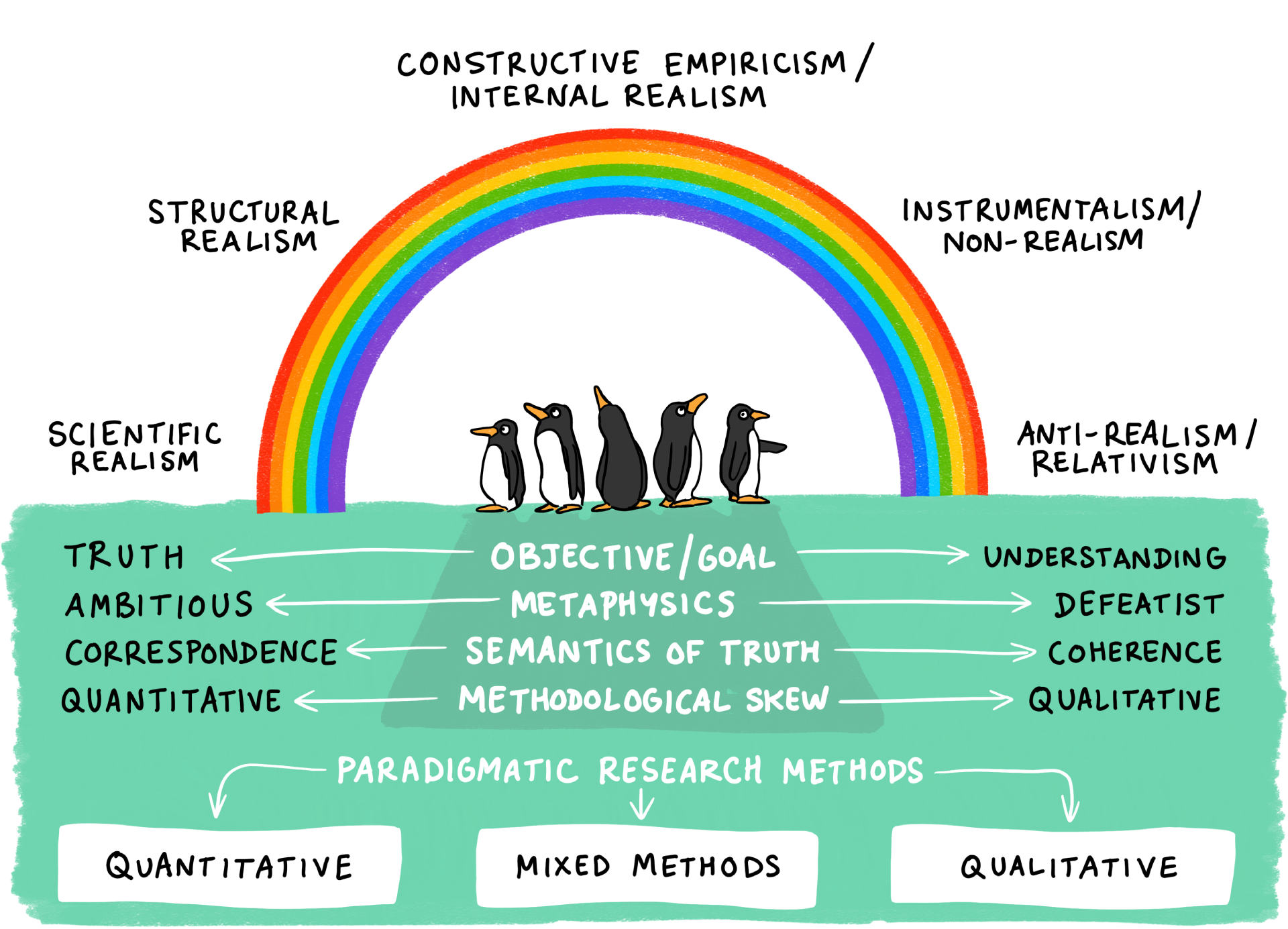1 Pragmatism
“Essentially, all models are wrong but some are useful.” (Box, 1976)
Pragmatism suspends questions of the final ‘truth’ of research outcomes and focuses only on their usefulness for a particular end. Pragmatists often make use of mixed methods and typically vary their approach depending on the constraints of a particular project. This can be quite effective for smaller or time-pressured research projects and avoids getting bogged down in philosophical issues and academic debates, but perhaps is of limited use in a doctoral project where the goal is usually to take the time needed to create new knowledge. On the other hand, doctoral projects are time-bound and moving in the direction of Pragmatism can be a route to successfully completing a project.
The crucial consideration for the Pragmatist is whether the outcomes of research have any application value rather than whether they are “true”. There are no distinctively pragmatic research methods since this approach is about making judicious use of the others. Pragmatic approaches may be less likely to prioritise ontological, epistemological or axiological consistency when combining different research methods, but the emphasis is on solving a pressing problem and adapting to the limitations of a project.
Each of these paradigmatic approaches is associated with methods that reflect their philosophical commitments, but the most important methodological difference is perhaps between Positivist and Interpretivist worldviews. Other paradigms typically make use of these approaches but with a distinctive slant. The following diagram shows how research approaches map onto philosophical worldviews.
Causal Comparative (Explain
variation, regression based)
Correlation Based
(Relation between variables)
Data Mining & Analytics
Experimental &
Non-experimental
Longitudinal Analysis
Meta-Analysis
Random Controlled Trials
Quasi-experimental
Survey
Convergent Parallel
Embedded Design
Explanatory Sequential
Exploratory Sequential
Interdisciplinary
Multidisciplinary
Multiphase
Transformative
Mixed Methods
Survey
Action Research
Case Study
Cognitive Interviews
Content Analysis
Design-Based Research
Ethnography
Grounded Theory
Historical
Iterative Design
Meta-synthesis
Narrative
Phenomenology
Survey
Figure 3. The Spectrum of Research Approaches and Paradigmatic Research Methods
Moving from a research paradigm to a specific research design can be a challenging process. In practice, research projects will often involve striking a balance between different elements of data collection and synthesis. It’s also important to ensure that the approach taken reflects the research question.
See Ryan (2018) and Pham (2018) for more on the advantages and disadvantages of different paradigms.


